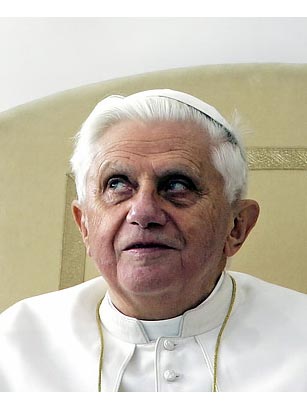
A Vicar of Doctrine Becomes a Diplomat
Can you be said to have survived a trial by fire if you lit the match? In the case of Benedict, the answer, apparently, is yes. In September he precipitated a burst of controversy with a speech quoting derogatory language about Muhammad and suggesting that Islam was predisposed toward violence. Would the Pope, whose year to date had featured an encyclical about love, a reconsideration of limbo and a possible partial reprieve for the Latin Mass, suddenly morph back into the aggressive Panzer Cardinal of his pre-election days and become a full-blown culture warrior? Or would he find some way, during a previously scheduled trip to Turkey, which is 99% Muslim, to defuse the issue?
Benedict, 79, defused it, along with some observers' preconceptions of him. By publicly supporting Turkey's entry into the European Union and praying in Istanbul's Sultan Ahmet (a.k.a. Blue) Mosque, the man who had seemed one of the Roman Catholic Church's most inflexible prelates appeared to flip-flop both on his prepapal, keep-Europe-Christian stance and his previously expressed distaste for interfaith prayer.
So Turkey was a puzzlement. But it was a fine piece of popular diplomacy, a sign that this noncharismatic academic, if pressed, can pull off the stagecraft that was his predecessor's forte. It also hinted that Benedict, perhaps better than his critics, understands the pious truism that taking the papal office can involve a subsuming, sometimes almost an erasure, of the man he thought he was before.